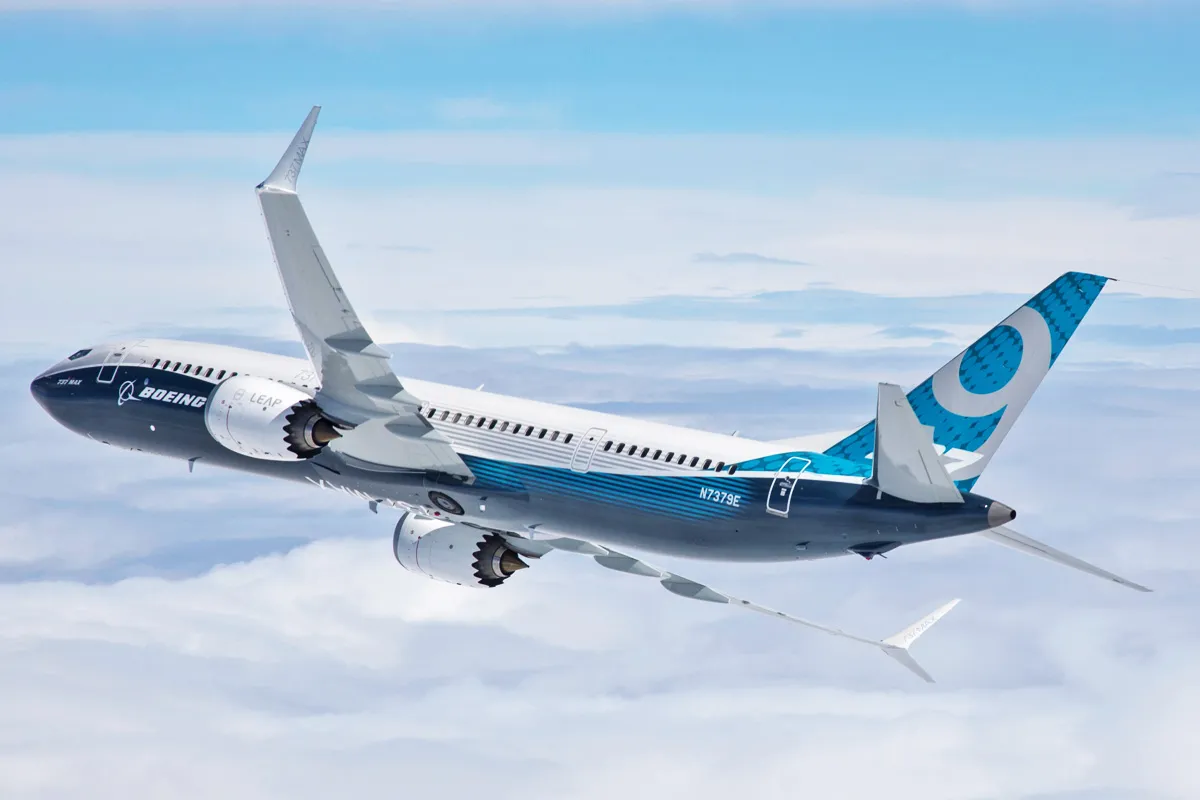
FAA Grounds 171 Boeing 737 MAX 9 Jets For Inspections
Jan 06, 2024

The Federal Aviation Administration has temporarily grounded 171 Boeing 737 MAX 9 jets to conduct thorough inspections following concerns over potential safety issues. This decision comes as part of ongoing efforts to ensure the airworthiness of the fleet after previous incidents involving the MAX series. Airlines operating these aircraft are required to comply with the FAA’s directives, which aim to address specific mechanical and operational checks. The grounding emphasizes the agency's commitment to passenger safety and maintaining rigorous standards within the aviation industry, while Boeing works closely with regulators to resolve any identified concerns.
The recent decision by the FAA to ground 171 Boeing 737 MAX 9 jets has sent ripples through the aviation industry. This move, primarily aimed at ensuring passenger safety, comes in the wake of ongoing inspections and concerns regarding the aircraft's safety systems. With the aviation sector still recovering from the effects of the pandemic, this situation raises critical questions about the future of the Boeing 737 MAX series.
Understanding the Grounding Decision
The grounding of these jets is not just a random occurrence; it is a calculated decision based on safety priorities. The "FAA" (Federal Aviation Administration) identified potential issues related to the aircraft's "safety systems" that necessitated immediate action. Inspections are crucial to determine the operational integrity of these jets before they can return to service.
This grounding affects several airlines that operate the "Boeing 737 MAX 9", disrupting flight schedules and leading to potential financial losses. Airlines need to ensure that they maintain both safety and operational efficiency, making this grounding a significant challenge.
Impact on Airlines and Passengers
With 171 jets grounded, the implications for airlines are substantial. The "Boeing 737 MAX 9" has been a popular choice for many carriers due to its fuel efficiency and capacity. However, the current situation forces airlines to rethink their operational strategies. Here is a summary of the potential impacts:
| Impact Area | Details |
|---|---|
| Flight Schedules | Significant disruptions leading to canceled or delayed flights. |
| Financial Losses | Increased operational costs, compensation for affected passengers, and potential loss of revenue. |
| Passenger Trust | Concerns over safety may lead to decreased passenger confidence in the "Boeing 737 MAX" series. |
Reasons Behind the FAA's Actions
The FAA's decision to ground the jets is rooted in a commitment to safety. Recent inspections have highlighted issues that could compromise the aircraft's performance. Some of the core reasons include:
- Potential Mechanical Failures: Investigations revealed that certain mechanical components may not meet safety standards.
- Software Concerns: Issues related to flight control software have raised alarms about the reliability of the "Boeing 737 MAX 9" during critical flight phases.
- Regulatory Compliance: The FAA's grounding decision ensures that all jets comply with the latest regulations before returning to service.
Steps for Inspections
The inspection process for the grounded jets is expected to be thorough and comprehensive. Airlines and maintenance teams will follow a strict protocol to ensure that every aircraft is safe for operation. This process may include:
- Detailed Mechanical Checks: Each aircraft will undergo rigorous mechanical inspections to identify and rectify any issues.
- Software Updates: Any identified software concerns will be addressed, and updates will be implemented before the jets are cleared for flight.
- Certification by FAA: Only after passing inspections and updates will the FAA certify the aircraft for service.
The Future of Boeing 737 MAX Series
The future of the "Boeing 737 MAX 9" and the broader MAX series will largely depend on how effectively Boeing and the airlines handle this grounding situation. Continuous improvements in safety protocols and transparent communication with the public are essential for restoring confidence in these aircraft.
Moreover, Boeing must stay proactive in addressing safety concerns to avoid future groundings. The company has already invested in research and development to enhance the safety features of its aircraft, which will be critical in regaining trust among airlines and passengers alike.
Conclusion
In conclusion, the grounding of 171 Boeing 737 MAX 9 jets by the FAA underscores the importance of safety in aviation. While this situation presents challenges for airlines and affects passengers, it also highlights the industry's commitment to stringent safety measures. As inspections proceed, the aviation community hopes for a swift resolution that will allow these jets to return to the skies, reaffirming the reliability of the "Boeing 737 MAX" series.
As we look to the future, it is vital for all stakeholders to remain vigilant and prioritize safety above all else. The lessons learned from this incident will shape the future operational standards and safety protocols in the aviation industry.
Related Articles

Explore Thailand: The Best Islands to Visit for Paradise, Adventure, and Relaxation

The Ultimate Guide to the Best Islands in Thailand for Your Next Getaway

Do babies need passports? How to get a passport for a newborn

How to get a U.S. passport fast: here’s how to expedite the process

What is Mobile Passport Control: 5 reasons why you should use it

SENTRI vs. Global Entry: A detailed guide

Do you need a passport to go to the Bahamas? Let’s find out

Do you need a passport to go to Mexico? A detailed guide

Do you need a passport to go to Canada? We got the answer

Do You Need a Passport for a Cruise: An Essential Travel Guide

Booster Seat Requirements: All the Rules to Follow in Your Rental Car

What Are the World’s Most Powerful Passports, and How Does Yours Rank?

How to Take a Passport Photo at Home: A Helpful Guide

You've got to have heart! Southwest's new livery

Your opinion: Should water be free on low cost carriers?

Young women bolder than guys as solo travellers
